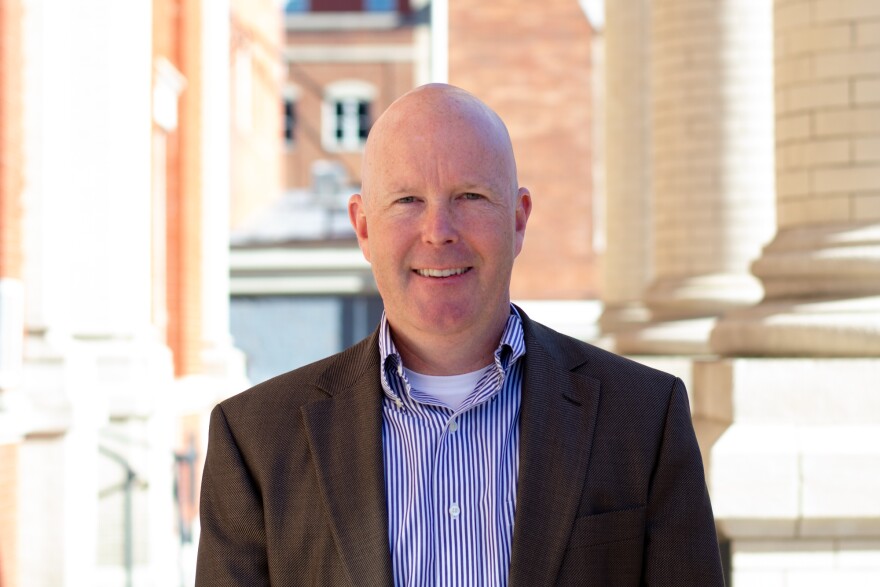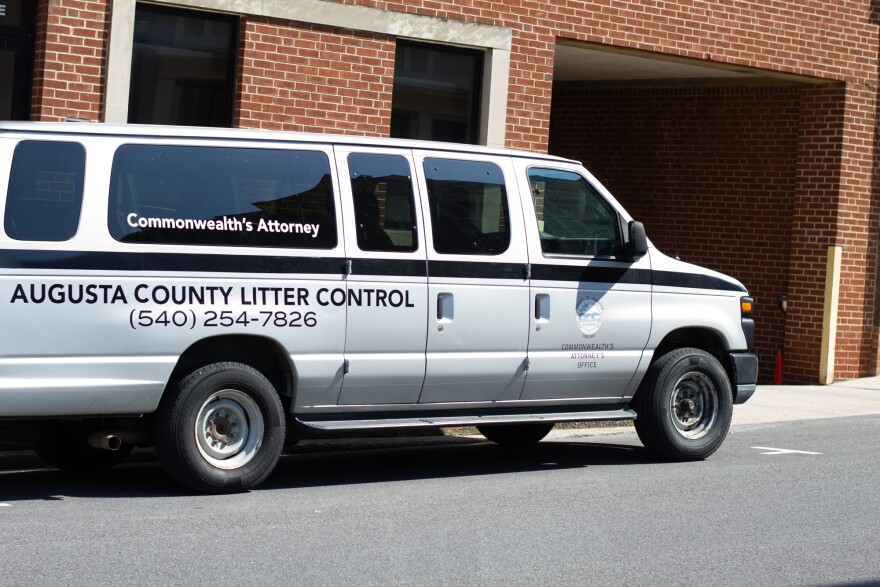An Augusta County program that provides an alternative to criminal prosecution for nonviolent people with mental health or substance abuse issues recently won a $1 million federal grant. WMRA's Randi B. Hagi reports.
Danielle Dunn, of Grottoes, is a mother of three and an Amazon employee who likes to hunt, tattoo, craft, and paint in her spare time. She was first introduced to the Pathways program after getting caught with methamphetamines at a baseball game in Fishersville, close to the coffee shop where we met to talk.
[espresso machines, people talking in the background]
DANIELLE DUNN: Actually, it all happened right across the street. … I was struggling with meth addiction really bad for a while, and … struggling with meth addiction's hard, especially in this valley. When you start injecting it, it's a lot harder to get off of it.
The deputy referred her to Pathways. It's a pre-charge diversion program run by the Augusta County Commonwealth's Attorney's office for people who have committed a nonviolent misdemeanor or felony-level drug possession, and are struggling with mental health or substance use issues. People who aren't criminal justice-involved can also join voluntarily.

DUNN: To be honest with you, I was completely … standoffish, because – not to sound messed up, but I know how the system can be sometimes. But I did, I contacted them. I had managed to get myself straight enough to where I was clean for my first drug test.
The first iteration of the program launched in 2020. Then, it was mainly for young people caught up on underage drinking or marijuana possession. Commonwealth's Attorney Tim Martin hired Caleb Kramer to run a program where the kids would pick up trash along the roadside to avoid charges. They started on a shoestring budget – Kramer bought the first trash grabbers himself. But when weed was decriminalized in 2021, they restructured the program for those struggling with mental health and addiction.
Martin explained –
TIM MARTIN: This is not out of some soft-hearted sympathy. It's out of a desire to help people who want to help themselves get clean, and there are some hard things that they have to deal with. This is not looking the other way and letting them destroy the county. … We do this because we consider it a public safety benefit.

Kramer said that, since early 2020, they've picked up around 150,000 pounds of trash.
KRAMER: And that's just bags. We also pull out couches, tires, mattresses, so that probably close to doubles it.
Through the program, participants can access job training, food and housing assistance, help signing up for Medicaid, and other services. They have to go to substance use and/or mental health treatment, stay sober, pick up litter for eight hours each month, and attend case management meetings, drug screenings, and support groups.
Danielle Dunn said it was hard juggling all this on top of working, raising three teenagers, and taking care of her disabled father. But the support of her case worker, Alice, helped her get through it.
DUNN: It requires a lot. It does take a lot of your extra time.

Not everyone completes the program. Of the 160 people referred to Pathways from law enforcement, 82 people facing misdemeanors and 15 facing felonies have graduated. Dunn finished in September of last year.
DUNN: I didn't think I'd be sitting where I am now. I didn't think that I would be clean. … I still struggle with it. I still go to NA meetings. I still have my moments, because I'm bipolar, so when stress hits me the most, it's like … that's normally when I'll go to a meeting or I'll reach out to somebody.
A new federal grant will help Pathways strengthen that social network for its participants. The U.S. Bureau of Justice Assistance awarded $1 million to the program to add peer recovery support services. Peer recovery specialists are people with lived experience of a mental health or addiction issue who support others on their recovery journey.
KRAMER: We need someone who's actually able to talk their language, not be the ones wearing a uniform.
NICKY FADLEY: I mean, it's considered an evidence-based practice.
Nicky Fadley is the founder and executive director of Strength in Peers, which offers groups and one-on-one support in the Page County Jail, Rockingham Harrisonburg Regional Jail, and Middle River Regional Jail. Many of their participants on the outside are on probation, too, so they're very used to working with the criminal justice system.

FADLEY: There's lots of research that points to the benefits of peer support, and I think since peer support became a certifiable profession … and became Medicaid-reimbursable in the state, you know, the profession has just continued to grow.
Dunn said her case worker suggested that she look into becoming a peer recovery specialist. Informally, she's used the resources from Pathways to help three of her friends get sober. She drove one to a medication-assisted treatment clinic after the friend nearly overdosed.
DUNN: I couldn't stand to watch her do that to herself. It was hard, but I'm glad it happened. I'm glad that I've been able to be that outreach for her and others. … There's always help. There's always an open door. You're never alone, and you can do it. I did.
Pathways will hire their first few peer recovery specialists in the coming months.


